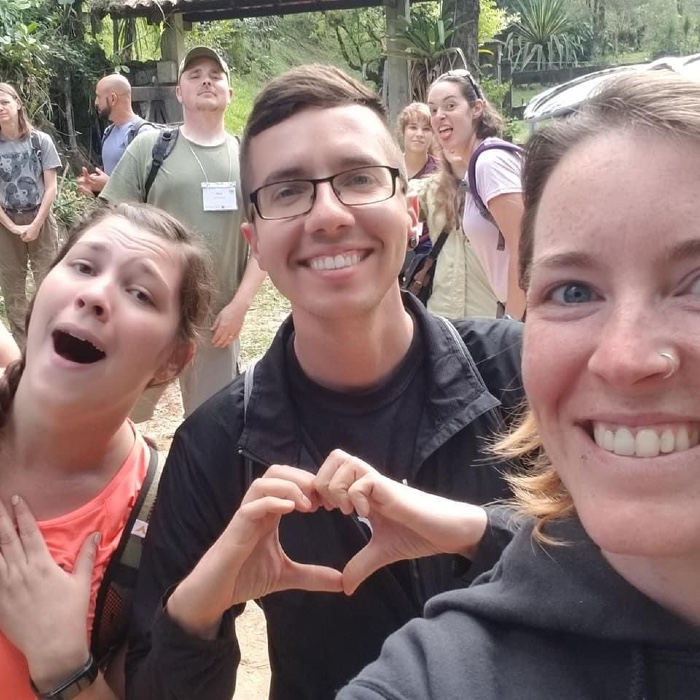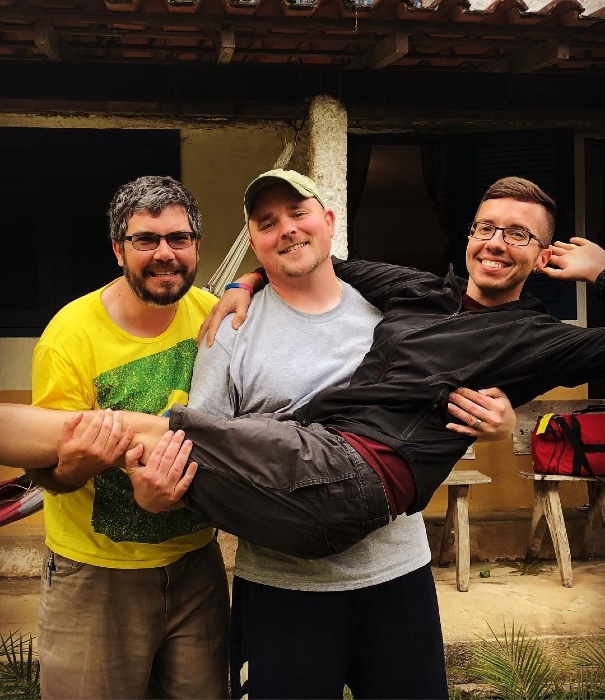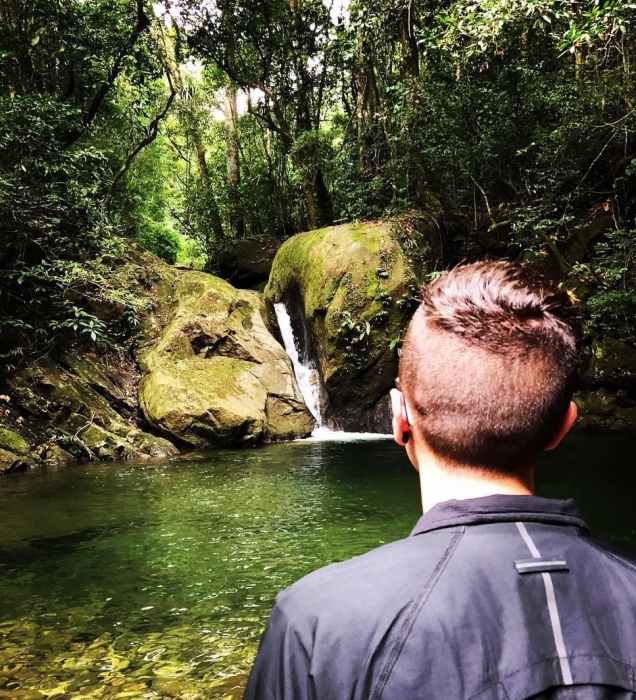Brazil Student Reflection: John Scott
Brazil Student Reflection: John Scott

Regrowth. This term is so simple and straightforward; however it completely encompasses my entire experience in Brazil. While my time spent in the Atlantic forest focused on a plethora of experiences and feelings, the concept of regrowth was so central and poignant that almost six months later it is the central concept of my memories of that place. On the third day of our Earth Expedition, one of my classmates Jess said, “it’s amazing how resilient the forest is, if we let it” which seared itself into my memory. Whether it is the physical Atlantic forest, Golden Lion Tamarins themselves, or us as humans, the power of regrowth and resilience surrounded us throughout our entire time in Brazil.

The Atlantic Forest is a key biodiversity area
which is home to a plethora of species, including Golden Lion Tamarins, however less than seven percent of the forest still remains (Hance 2010). This staggering figure essentially means the destruction of GLTs as a species, since there is simply no place for these animals anymore. Habitat destruction in order to make more room for agriculture is nothing new for conservationists; however saving the remaining forest is a daunting task. The staff at the Associação Mico-Leão-Dourado (AMLD) is working tirelessly to replant the forest and create wildlife corridors so that tamarins are able to move between fragmented pieces of land. It was amazing to stand in a replanted forest and see how much it had grown over the short amount of time that it had been planted. In addition, getting to contribute and plant our own trees was an experience I will never forget. This forest which was destroyed and clear cut has been restored in small patches and the future home to a multitude of species. It makes you feel small standing in these re-grown areas of forest, insignificant almost. While mankind can destroy the forest and the planet, if we let the forest grow back, it can heal itself.
While the replanted forest makes one feel small, seeing the reintroduced Golden Lion Tamarins made me insanely proud to work at a zoo as a zookeeper. Thanks to the efforts of zoos and AMLD, Golden Lion Tamarins were listed as endangered rather than critically endangered in 2003, and there are more than 3,200 GLTs in the wild. I wrote on my last day of our Earth Expedition, “so many times as a zookeeper, I feel like my job is a shout into the void and that all my daily efforts are in vain. What impact on conservation do I have in my daily life if all I am doing is cleaning and feeding?” This program opened my eyes to the tremendous impact that zoos can have on in-situ conservation efforts and that my daily life does indeed have a major impact on conservation. The Golden Lion Tamarin was reintroduced into the wild with major assistance from zoos just like mine, which was facilitated by zookeepers just like me. We are all pieces of the conservation puzzle, and while I am not in the field, I too can have an impact on saving species. I left for Brazil feeling sometimes disillusioned with how much impact my job actually has, but Brazil was the site of the regrowth of my passion for my job.

And lastly, Brazil was the regrowth of myself. When I left for Brazil, I was in a million pieces and didn’t know how I was going to travel to a foreign country and meet a group of complete strangers and spend ten days in the forest with them. Leaving Brazil, I felt better than ever and ready to tackle my life back in the Big Apple. Brazil taught me how strong I actually am, and brought my old self back to life. If I can navigate in a country where I speak zero Portuguese, I can do anything back in the states. If I can spend nine days in the jungle, being eaten alive by mosquitoes, I can do anything in the concrete jungle. And if I can be vulnerable enough to make a whole new group of friends at the lowest of my lows, imagine what I can do at my best.
Regrowth: such a simple concept, but one that sums up my incredible two weeks in Brazil.
Works Cited:
Hance, J. (2010). Brazil's Atlantic Forest (Mata Atlântica). Retrieved from
https://rainforests.mongabay.com/mata-atlantica/mata-atlantica.html
Learn more about our Earth Expeditions course: Brazil: Saving Golden Lion Tamarins
